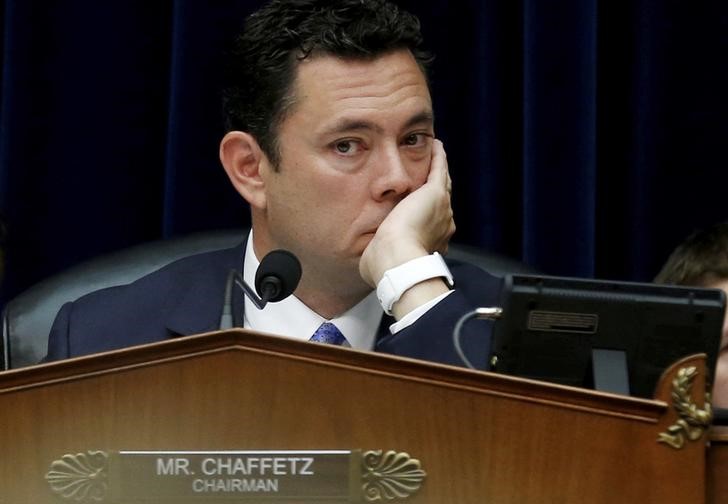Investing.com’s stocks of the week
By Kate Kelland
LONDON (Reuters) - The chairman of a U.S. congressional committee investigating taxpayer funding of a World Health Organization cancer agency has asked U.S. health officials to release crucial documents.
In a letter seen by Reuters and sent on Thursday to the head of the National Institutes of Health (NIH), U.S. Representative Jason Chaffetz questioned whether the WHO's International Agency for Research on Cancer (IARC) was trying to "avoid public scrutiny" by asking its experts not to disclose requested information.
IARC staff were not immediately available for comment. An NIH spokeswoman could not confirm the receiving the letter, but said the agency would respond if and when it arrived.
The House Committee on Oversight and Government Reform, which Chaffetz chairs, began looking into the NIH's links with IARC last year after several lawmakers raised questions about why U.S. taxpayers are funding an agency that often faces criticism for its work.
The letter marks the latest salvo in a battle between Congress, NIH and IARC that was fueled by IARC's review of the weedkiller glyphosate.
IARC classifies glyphosate, a key ingredient of Monsanto (NYSE:MON) Co's herbicide Roundup, as "probably carcinogenic." That assessment puts IARC at odds with many government regulators, including those in the United States, Europe, Canada, Japan and New Zealand, who say it is unlikely to pose a cancer risk to humans.
Last year, IARC advised academic experts on its glyphosate review panel not to disclose documents they were asked to release under United States freedom of information laws.
Chaffetz also sent a separate letter on Thursday to the National Archives and Records Administration office, asking for clarification of federal records law, specifically relating to information sent between a foreign body and a U.S. government email account.
IARC is semi-autonomous part of the WHO based in Lyon, France. Its assessments of whether such things as coffee, mobile phones, processed meat and glyphosate cause cancer have caused particular controversy in recent years.
IARC's critics say the agency is sometimes too quick to conclude that substances might cause cancer, prompting unnecessary health scares.
IARC, however, defends its methods as scientifically sound and says its monographs - the name it gives its classifications of carcinogens - are "widely respected for their scientific rigor, standardized and transparent process and ... freedom from conflicts of interest."
Chaffetz originally wrote to NIH director Francis Collins in September last year describing IARC as having "a record of controversy, retractions, and inconsistencies" and asking why the NIH, which has an annual budget of $33 billion, continues to fund it.
In Thursday's follow-up letter, Chaffetz noted that IARC had since then told some of its working group members to not release documents to the Congressional committee. Now, Chaffetz said, the committee wanted access to all IARC employee communications related to public records requests, and other documents.
In both letters, Chaffetz asks for a response by Jan. 24.
